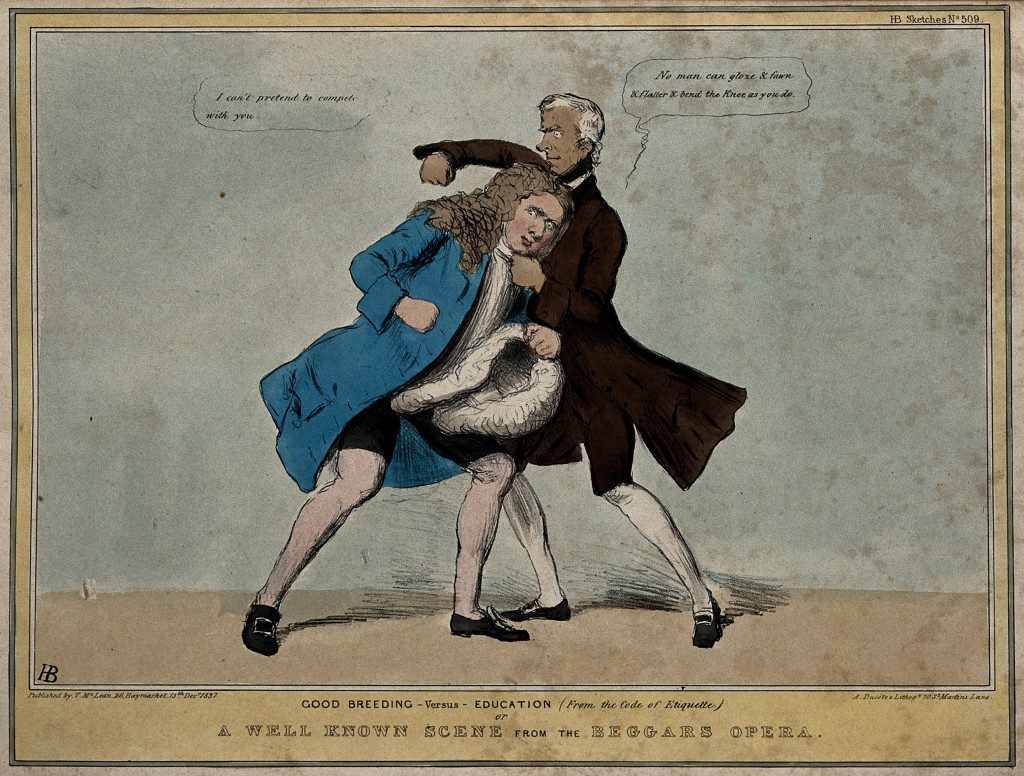
Readers, as much as this blog has been a bit neglected lately (coming up soon: “how I moved my parents to an assisted living community and lived to tell about it”), I still have opinions and I still have conversations, and I still bemoan in other forums the divisiveness around us, and, yes, after I manage to find more (non-retirement) writing time again, I will resume more regular blogging. But in the meantime, here’s a guest post, by, let’s say, “Jane Foster”:
***************************
I’d like to thank Jane the Actuary for giving me the space to write here. Two ground rules up front. One, these are my words, not hers. I made a comment on a Facebook page which she suggested I turn into an article. I appreciate the space, but I want you readers who disagree with this to take issue with me, not her.
Second, I don’t want to read “…but the right” in response to this article. Binary politics have poisoned our system, and everybody is guilty of whataboutism as a reflexive defense mechanism. But I predict that the first response to this article is going to tend towards: “But the right.” Or “But Republicans.” Or “But conservatives.” Because the gut response in an accusation of wrongdoing is often to make the comparative point that whatever my sin is, somebody else has done worse.
I want to make clear here that I’m not a Republican, and I don’t identify as a conservative, and I’m nowhere near a rad-trad Catholic, and I didn’t vote for Trump in 2016. Whatever issues I have with the right, they will not be addressed here, because my specific concerns are with the left in this piece. If you cannot withstand scrutiny of your own issues, I don’t want to hear from you. You’ll have to take those up with God someday, and he is most definitely not going to be responsive to “…but the right.”
—————–
So, a little story. Years ago, I heard a priest talk about the Life Teen program, and why it was so important. He recounted a story about a teenage ex-parishioner who’d gone over to the local Protestant Church. The priest asked him a number of things: why’d you leave? Do you not believe in the Eucharist? Oh, no. He believed. Was it the music? Oh, no, Catholic music was fine. Was it the Church’s authority? Oh, no—Jesus instituted the Church. So, what was it?
And the young man said: I don’t feel loved here. I feel loved at that other church.
——————-
Have we always had a left-right split in the Church? I don’t know. It’s been much more pronounced since the 1990s, as far as I can remember. That was back when the world started to turn on homosexuality, when the Church started to realize that harshly yelling at pregnant women going into abortion clinics might not be the best method of saving babies. When the right was ascendant, the left side of the Church frequently appealed to Christ’s love. Look, Jesus forgives! Hate the sinner, not the sin! Your harsh adherence to the rules is missing the point!
Somewhere in the last five years, you guys lost track of that.
I don’t know how else to put this to you: the liberal side of the Catholic Church has gone from loving to, well, mean. You’ve taken on a very dim view of anyone who isn’t lockstep with you, and it’s making for a very ugly presentation of what it takes to be a “true” Catholic who’s in line with Christ. I understand when the harsh rebuke is necessary, and we all know that Jesus yelled at Peter and turned over tables in the Temple.
But that wasn’t all that Jesus was, and he could be as loving and welcoming as often as he was stern. Maybe more so. He rebuked his apostles before the cross. He didn’t rebuke them when he was on it, nor did he guilt them after.
I’m not sure what’s gone haywire with liberalism in general and liberal Catholics in the specific, but I’m increasingly perceiving this inability to separate sin from sinner. Disagreement frequently becomes a separation between “us” and “them,” the saved and the damned, and the damned are beyond redemption. Think me wrong? Consider: how often do you broadly judge things in terms of your opponent being Republican? Or conservative? Or male? Or white? When’s the last time you used a phrase like “…conservative cisgender white men are so…” without really thinking through the implications of what that means?
There’s a disturbing strain of Puritanism which has crept into liberalism of late, which I can only view as the impure is wrong. Right now, the New York Times is running a series of articles called “The 1619 Project,” and although it purports to study slavery’s effects on American history, it realistically seems to be suggesting that America is permanently tainted from its founding.
I’m all for studying slavery so as to correct and avoid repeating it, but this strain of leftist Puritanism frequently seems to view America as irredeemable: once a slave country, forever a slave country. And yet, this ignores one salvific fact about America’s founding: the signers of our Constitution recognized we were imperfect. The United States is accountable to its voters, and its leaders can be replaced when its people find that they’re no longer working. And the Constitution itself is correctible: it’s got a built-in amendment process that allows us to reconsider and improve the document.
For pity’s sake, it’s been amended twenty-seven times, the first ten at the outset! Slavery was wrong, but we fixed that. Denying suffrage was wrong, but we fixed that. By design, the Constitution says: we can do better. We are giving ourselves the means to do that.
I bring up this dim view of America because, frankly, I see this in broad segments of liberal American Catholicism. Habitually, you are broadly writing off large segments of people. Men are corrupt. White people are corrupt. Conservatives are corrupt. Traditionalists are corrupt. I’ve even seen blatant arguments: let us no longer associate with those who we consider evil. Only we truly follow Christ.
It’s no wonder that liberal Catholicism seems to be falling prey to two of the worst parts of modern America: “call-out” culture and “cancel” culture, both of which seek to segment and destroy individuals for sins, perceived or real. If conservative Catholicism suffers from being “Christianist” rather than truly Christian, than liberal Catholicism suffers from becoming what I think of as “Toxic Catholicism.”
And lest you think I’m apologizing for what’s being called out, I’m not. I’m saying the way you’re going about it is entirely antithetical to Jesus’ mission, and you’re losing yourselves in the name of righteous anger. Call-out culture goes toxic when it stops being about targeting bad behavior and starts being about destroying the target, presumably to stoke your own endorphins.
What is Toxic Catholicism? I’m still working through that, and maybe that’ll be a future article if Jane allows it. But I’m noticing recurring symptoms.
One: Toxic Catholicism is focused more on sinners than sin, which is why you end up advocating in terms of groups “Christianists are evil….” instead of in terms of behavior (“Christianists are wrong when they….”)
Two: Toxic Catholics lose sight of their own sin even as they focus on the sins of others. Oh, yes, I’m very conscious of this one. Because I’ve been watching some of you liberal Catholics, on your blogs, your Facebook, and your Twitter. It’s very telling when you condemn sin, and yet tolerate lies in your comboxes, and gossip, and objectify your opponents into jokes instead of addressing what you perceive as sin. If I saw prayer for your enemies, I’d be fine. When I see jokes and slander, laughing at the difference of the other–something’s way off.
And frankly? I recently saw a liberal Catholic blogger tell a blatant lie in one of his articles. A single lie, but it was unmistakably there and went uncorrected. Let me avoid opening the gossip floodgates by identifying the author; they know who they are. My point is that this author decided to resort to his own sin in the name of fighting his cause, and this really misses the mark of what Jesus expects of us.
Three: Toxic Catholics become very, very selective in their reading of scripture, cherry-picking what works while ignoring what doesn’t. Here’s one: if call-out culture is so important, why does Jesus admonish us to approach sinners privately before going public? How many of you have taken your neighbor aside before rebuking him to the world? This very website recently had a very ugly public spat with one of its apologists, and frankly, I’m sickened that two writers can’t chat offline before showing their entire readership an ugly fight.
Here’s another: I’m seeing an increased resort to judgmentalism lately, applying the Parousia and the Last Judgement to everything from immigration policy to student loan forgiveness. I generally disagree with this to the extent that Christ set parameters for charity, not specific public policy. Never mind the fact that you’re turning Jesus into a terrifying monster, you’re also assuming Christ’s role as judge unto yourselves. Jesus warns, classically, not to engage in the judgment of souls ourselves. “Stoning” is reserved for the sinless, and the only sinless one is Jesus himself. And yet, somehow, you’ve taken it upon yourselves to decide who’s going to hell…because of an open-ended public policy debate on student loans?
Over and over, I see all of these things in my dealings with toxic, liberal, Catholics. You are nothing but your sins, and your sins are unforgiveable. And so, when a celebrity or politician’s old tweets or yearbook photos are discovered, they must be cancelled no matter how distant the sin and how the individual behaves now. If you hate shootings but want to see the right of self-defense protected: no matter, you’re a murderer. If you hate rape but want to see protections for the innocently accused protected: no matter, you support rape. If you hate bigotry but don’t want to see religious rights protected while allowing differences to coexist in society: no matter, you are a bigot. There is no room for theoretical differences and Overton windows: there is only your side, and purity tests.
I’m increasingly distancing myself from these kinds of Catholics because, frankly, I’d spend my time wondering how long it will take before they snap and try to destroy me for the wrong opinion and failing a purity test. You love the song “All Are Welcome,” but…are we really? Knowing that we may not see eye-to-eye on all issues, do you really want me before the same tabernacle as you? Somehow, I don’t think so. Not in the way you express yourself. Not in the way I see you talking about me, or others.
I brought up my cynicism about “The 1619 Project” and my own view that America is designed to be corrective because it’s partially my own view of what Christ wants for me. I’m flawed. I’m aware of this (although I suspect how you see me as flawed is not how I see me as flawed). But the difference between Toxic Liberal Catholics and Jesus Christ is that the former wants to see me shut down and doesn’t care what happens next. Jesus? He constantly calls for improvement. He’s concerned with the past to the extent he wants it changed. He’s concerned with the future with respect to where he wants to see it go.
You can point to the Parousia all you want as to where you think I and any other “bad” Catholic is headed. But I never see you looking to the parables of healing and forgiveness as a precursor to that. Not once, of late, do I see you looking at the “other” as the Lost Sheep, who Jesus seeks to bring back to the flock rather than condemn as a stray. Or the Prodigal Son, who Jesus welcomes with open arms and doesn’t dwell on the failures. Always, always, always, Jesus sees value in every human being, no matter how lost.
You? I never hear it. I’m like that kid who inspired Life Teen: if I’m leaving, it’s because I don’t feel loved, and you act like you don’t want me here.
Let me close with a challenge to you in the liberal Catholic community. The next time you have a discussion, or a Facebook post, or a blog article about the hated other—the conservatives, the Republicans, the men, the white people, or even an individual with whom you disagree—do this.
Stop. Don’t publish it yet or speak your mind.
Take what you’re about to say or have written. Remove their name or category and replace it with “my brother,” or “my sister,” or “my brothers/sisters” as appropriate. Want to make this harder? Write “my brother/sister in Christ with whom I am divided.” Get rid of the label. Write or say that.
Does your piece still read or sound the same way? Do you still want to speak or say what you’ve readied?
I’ve said my piece. God love you, but please keep your distance until you can love me too.
Image: V0050236 A fist-fight between Lord Brougham and Lord Melbourne as Pea
Credit: Wellcome Library, London. Wellcome Images
[email protected]
http://wellcomeimages.org
A fist-fight between Lord Brougham and Lord Melbourne as Peachum and Lockit. Coloured lithograph by H.B. (John Doyle), 1837.
1837 By: John DoylePublished: 22 October 1836
Copyrighted work available under Creative Commons Attribution only licence CC BY 4.0 http://creativecommons.org/licenses/by/4.0/










